Transforming policy into learning dynamics
Ms. H' Mia Ênuôl (born in 1995, village 4, Cu Ebur commune, Buon Ma Thuot city) is a typical example of success thanks to choosing vocational training. Due to difficult conditions, she dropped out of school after grade 10. Two years ago, with free vocational training support under Decree 81/2021, she studied bartending at Dam San Vocational Training Center. After graduating, she opened a small coffee shop, initially stabilizing her family's economy and creating jobs for some young people in the village.
“During my apprenticeship, I received support from teachers and the center in legal procedures. In addition to the techniques for making drinks, coffee, etc., teachers also provided many useful lessons in business, thanks to which I boldly invested in a coffee shop to create a stable income for my family and jobs for disadvantaged children in the village,” said Ms. H' Mia.
Similarly, Mr. Sung Seo Hai (born in 1998, Cu Dram commune, Krong Bong district) studied motorbike repair at Tay Nguyen Intermediate School, combined with studying culture at Cu Kuin District Vocational Education and Continuing Education Center. With the skills, he opened a motorbike repair shop in his hometown and plans to open another facility in Cu San commune (M'Drak district).
“After gaining skills, I asked my parents to borrow 100 million VND from the bank to open a car repair shop. In the near future, due to the need to expand the scale and create more jobs for young people in the village, I will open another shop in Cu San commune, M'Drắk district,” Mr. Hai shared.
According to Mr. Hai, in the past, most young men in the village "got married" early, many of his peers now have 3-4 children, life is miserable. He was lucky when the commune encouraged him to go to school under the tuition-free support policy. "Having a job in hand is thanks to the Party, the State and the officials who came to their homes to encourage them. Therefore, I have to try to improve my skills to help many young people change their lives," Mr. Hai added.

Pillars for sustainable development
Ms. Tran Thi Thiet - Principal of Tay Nguyen Secondary School affirmed that the unit will continue to invest in more modern teaching equipment and practice laboratories. "We have brought modern laboratories and practice to disadvantaged areas such as Cu Kuin, Ea H'leo, Krong Pac... with the desire to help ethnic minority students have direct access to improve their learning and practice.
After graduating, students will have solid theoretical and practical skills as well as practical behavioral skills. Thereby, meeting the requirements of businesses and employers, increasing job opportunities at home and abroad," Ms. Thiet expressed.
According to Ms. Thiet, for sustainable development, the policy from Decree 81/2021 is only a necessary condition, because the core of vocational training is employment. Therefore, the unit has signed contracts with units and businesses to enhance output assurance for students and trainees after graduation.
According to Ms. Tran Thi Minh Ly - Vice Principal of Dak Lak Secondary School, in the coming time, the unit will step up propaganda to increase the number of students who will benefit from Decree 81/2021. This is also a way for the unit to accompany the locality in improving the quality of vocational training and creating jobs after graduation for students and trainees.
Dr. Do Tuong Hiep - Deputy Director of the Department of Education and Training of Dak Lak province said that vocational training for ethnic minority youth is an important pillar in the sustainable development strategy in the Central Highlands. "Ethnic minority students no longer stop at grade 9. They are taught vocational training, culture, and life skills - that is a big change in thinking about developing local human resources", Mr. Hiep commented.
Currently, the Department of Education and Training of Dak Lak is stepping up guidance through admission consultation sessions and orientation for post-secondary education. Therefore, the rate of choosing vocational training combined with general education has increased by more than 10% compared to last year.
Vocational training institutions in Dak Lak are also actively innovating training content and methods, connecting with businesses and localities to be closer to reality, and diversifying occupations suitable for the market such as: Tourism, e-commerce, motorbike repair, graphic design, information technology...
It can be said that the vocational training policy for ethnic minority youth under Decree 81/2021/ND-CP not only removes financial barriers, but also creates opportunities to access vocational skills, employment and self-development. This is not only a "priority" policy but has truly become a sustainable development corridor, contributing to improving people's knowledge, eliminating hunger and reducing poverty and promoting harmonious development between regions.
Mr. Le Hai Ly - Director of the Employment Service Center (Dak Lak Department of Home Affairs) said that in 2025, the Southeast provinces such as Ho Chi Minh City, Binh Duong, Dong Nai need to recruit about 16,000 unskilled and skilled workers. Meanwhile, foreign labor markets such as Korea, Japan... need about 6,000 skilled workers. This is an opportunity for vocational schools and students to have early career choices.
Source: https://giaoducthoidai.vn/dao-tao-nghe-song-song-hoc-van-hoa-phat-trien-ben-vung-post737046.html




![[Photo] Opening of the World Cultural Festival in Hanoi](https://vphoto.vietnam.vn/thumb/1200x675/vietnam/resource/IMAGE/2025/10/10/1760113426728_ndo_br_lehoi-khaimac-jpg.webp)
![[Photo] Discover unique experiences at the first World Cultural Festival](https://vphoto.vietnam.vn/thumb/1200x675/vietnam/resource/IMAGE/2025/10/11/1760198064937_le-hoi-van-hoa-4199-3623-jpg.webp)
![[Photo] General Secretary attends the parade to celebrate the 80th anniversary of the founding of the Korean Workers' Party](https://vphoto.vietnam.vn/thumb/1200x675/vietnam/resource/IMAGE/2025/10/11/1760150039564_vna-potal-tong-bi-thu-du-le-duyet-binh-ky-niem-80-nam-thanh-lap-dang-lao-dong-trieu-tien-8331994-jpg.webp)



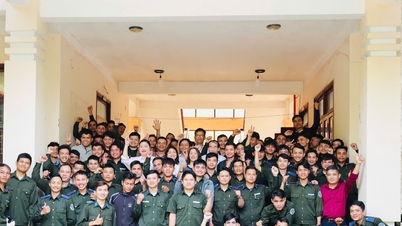

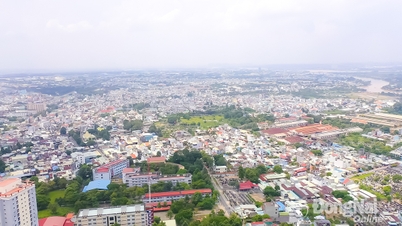


![[Infographics] An Giang - Vision 2030: Green development, digital and deep integration](https://vphoto.vietnam.vn/thumb/402x226/vietnam/resource/IMAGE/2025/10/10/1760066315567_infographics-an-gi_6489_1760014457.png)







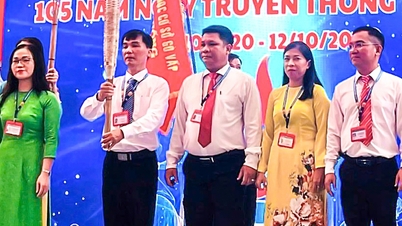

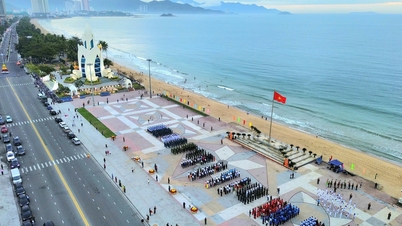










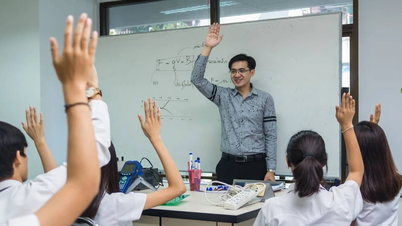
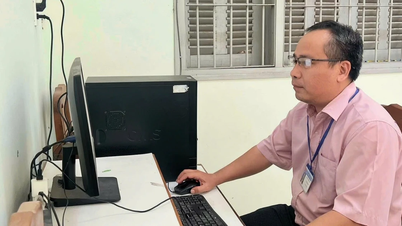
![[Photo] Ho Chi Minh City is brilliant with flags and flowers on the eve of the 1st Party Congress, term 2025-2030](https://vphoto.vietnam.vn/thumb/1200x675/vietnam/resource/IMAGE/2025/10/10/1760102923219_ndo_br_thiet-ke-chua-co-ten-43-png.webp)










































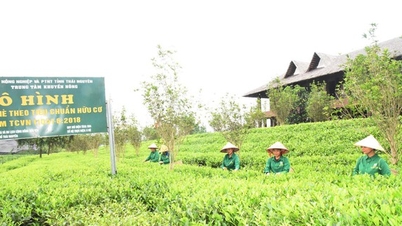




























Comment (0)